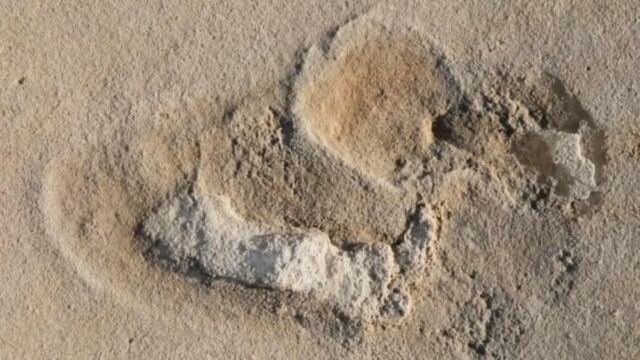A team of scientists has discovered what is thought to be the oldest-known footprints of pre-humans on the Mediterranean island of Crete.
Discover our latest podcast
They are estimated to be about six million years old and were from fossilized beach sediments.
Age Determination
The team of researchers from Germany, Sweden, Greece, Egypt, and England, used geophysical and micropaleontological methods to determine the age of the prints, which were first discovered in 2017.
By this, they have established that these footprints are the oldest direct evidence of a human-like foot used for walking.
In a study published in the journal Scientific Reports, Uwe Kirscher, lead researcher said:
The tracks are almost 2.5 million years older than the tracks attributed to Australopithecus afarensis (Lucy) from Laetoli in Tanzania
Evolutionary Influence
The dating of the Cretan footprints, offers more insight into the early evolution of human perambulation, more than six million years ago.
Per Ahlberg is a professor at Uppsala University and co-author of the study.
The oldest human foot used for upright walking had a ball, with a strong parallel big toe, and successively shorter side toes. The foot had a shorter sole than Australopithecus. An arch was not yet pronounced and the heel was narrower.
Six million years ago, Crete was connected to the Greek mainland via the Peloponnese. One of the research leads, Professor Madelaine Böhme explained:
We cannot rule out a connection between the producer of the tracks and the possible pre-human Graecopithecus freybergi.
The findings of this new study furthermore confirms recent research which claims that six million years ago, the European and Near East mainland were separated from humid East Africa by a relatively brief expansion of the Sahara.















